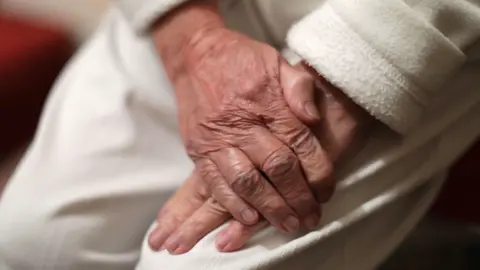NHS dietitian put frail patients at 'risk of harm'
 Google Maps
Google MapsA former NHS dietitian has been banned after he was found to have put "vulnerable and frail" patients with diabetes and motor neurone disease at "risk of harm".
David Brown "persistently and consistently" failed to maintain accurate records between May 2019 and February 2020 while working at Ipswich Hospital.
Following a hearing led by the Health & Care Professions Tribunal Service, Mr Brown was banned from practising for 12 months.
Mr Brown, who is no longer working as a dietitian, acknowledged his record-keeping did not meet the standard expected but denied he acted dishonestly.
During a two-day hearing, which the "experienced" NHS worker did not attend, a panel concluded several of the allegations levelled at Mr Brown had been proven.
These included not recording full clinical information from appointments with patients and not providing full clinical documentation in relation to interventions.
He also failed in reviewing service users in a timely manner, and he once recorded he had visited a patient in December 2019 even though they had died a month earlier.
On one occasion, Mr Brown took five months to record the outcome of a visit to patient’s home, despite being required to do so within a week.
 PA
PAThe panel said its decision to suspend Mr Brown for 12 months reflected "the seriousness of the matters" and helped to ensure public protection.
It said: “The misconduct had taken place over a lengthy period and there was continuous repetition of the misconduct.
"[Mr Brown’s] behaviour affected a large number of service users and there had been an ever-present risk of harm as a result of his behaviour.
"The service users affected were all vulnerable and frail service users and there had been persistent and consistent failings in his record-keeping.
"He has not expressed any regret or remorse, nor has he provided any apology for his behaviour."
Mr Brown is no longer working for the NHS, having joined the Army in June 2020, but he has accepted the need for additional training should he ever return to the profession.
He has also claimed that personal and private issues, a large caseload, and difficulties using the system used to record information contributed to his failings.
Mr Brown has denied he acted dishonestly and said his visit to the patient who had died did take place prior to their death, but he had entered an incorrect date in "error".
Follow Suffolk news on BBC Sounds, Facebook, Instagram and X.
